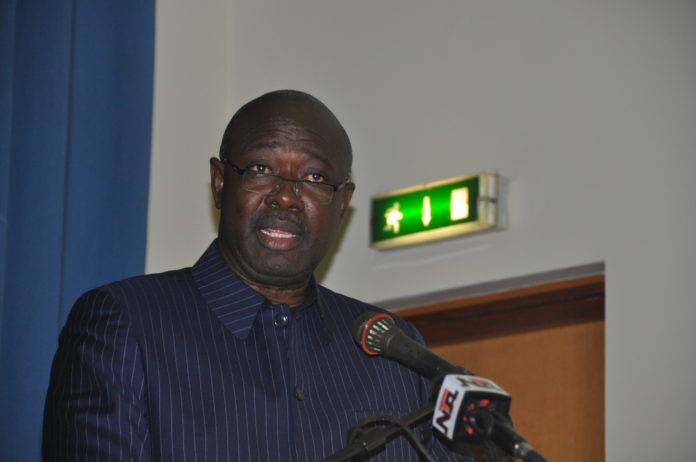
The Federal Government is to implement “climate-smart” agriculture under the Nigeria’s National Determined Contributions (NDC) programme.
Minister of State for Agriculture and Rural Development, Senator Heineken Lokpobiri disclosed this in Abuja on Friday, 14th October at the 2016 World Food Day symposium/colloquium, jointly organized by the Federal Ministry of Agriculture and Rural Development, United Nations’ Food and Agriculture Organization (FAO), Oxfam and SQN Solutions.
Senator Lokpobiri stated that, “as we cannot abandon agriculture, the next option is to practice climate-smart agriculture, involving climate change national campaign, agro-sensor construction, weather index crops and agricultural water control, among others.”
To achieve the implementation, the Minister informed that, in September 2016, Nigeria aligned itself to the Adaptation and Agriculture in Africa (AAA) initiative, which is designed to address the link between climate change and food security in African countries.
The Minister added that, “This initiative, among others, will contribute to the Global Climate Action Agenda (GCAA) by promoting African projects and good practices in soil management, reconversion to fruit trees and agro forestry, agricultural water management, climate risk management and dedicated financing solutions for smallholders.”
He challenged stakeholders in the agricultural sector of Nigeria’s economy to see climate change as the biggest threat to global food security. He noted that the most vulnerable people to food insecurity are farmers, who are the hardest hit by higher temperatures and increasing rainfalls, as well as droughts and flood, thereby making them among the poorest people in the country.
He added that, as the most populous country in Africa, Nigeria is the most vulnerable to climate change, with about 70% of her people dependent on agriculture for their livelihood. “Therefore, increases in droughts, floods, erosion, land degradation and other threats to agriculture, and its acceleration in the coming decades will impact heavily on food security. It is therefore, very imperative to ensure that relevant strategic action plans are in place to mitigate the effect of climate change, as the livelihood of our population are agriculture- dependent, and food security is linked to national security”, the Minister stated.
He informed that upon realizing the need for Nigeria to avert the effect of climate change on food security, the Federal Government in 2013 initiated the national policy on climate change, with an integrated intervention action plan to reduce the sector’s vulnerability to climate change, and that his Ministry quickly aligned to the policy with the establishment of the department of Agriculture, Land and Climate Change Management Services to address climate change issues.
He stated further that, in line with the philosophy and policy thrust of the present administration, the Federal Ministry of Agriculture and Rural Development has developed a new policy direction in agriculture for 2016-2020, and one of the key components of the policy is climate change and environmental sustainability, focusing on sustainable use of natural resources to ensure increased production, with the future generation in mind.
Senator Lokpobiri called on all stakeholders in the agricultural sector to work as a team and ensure that every change in climate is accompanied with a sustainable change that guarantees nutritious food availability and affordability for the ever growing population of Nigeria.
The symposium/colloquium was one of the activities lined up to mark this year’s World Food day. Other activities include a photo/food exhibition on Monday, 17th October, 2016.
World Food Day is celebrated on 16th October every year. The theme for this year’s celebration is “Climate is changing: Food and agriculture must too”.





